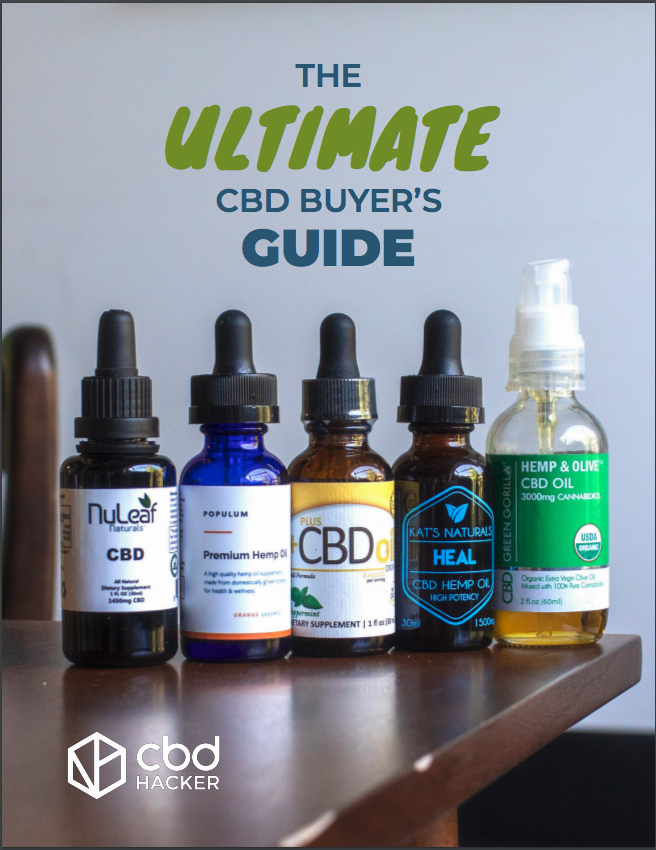Ohio was front and center in hemp news this week as Governor Mike DeWine signed Senate Bill 57 into law, launching the state’s hemp program.
The bill will thrust Ohio farmers into the so-called “green rush” by allowing them to grow industrial hemp. And the law opened new markets for hemp by legalizing hemp-derived CBD. In addition, universities will be able to grow and process the crop for research.
According to Dorothy Pelanda, Director of the Ohio Department of Agriculture, the department began to get calls from farmers almost immediately after the signing of the bill. “Farmers wanted to know how to get a license,” Pelanda said.
This Week’s Top CBD Deals
NuLeaf Naturals
Discount: 20%
Code: cbdhacker
Pure Hemp Botanicals
Discount: 20%
Code: cbdhacker20
4 Corners Cannabis
Discount: 20%
Code: Hacker20
Populum
Discount: 15%
Code: Hacker15
Mission Farms
Discount: 20%
Code: cbdhacker
Joy Organics
Discount: 15%
Code: cbdhacker
The legalization of hemp at the state level is causing big changes in the way that law enforcement deals with marijuana. And this is true even in states where marijuana isn’t yet legal.
In Florida this week, State Attorney Jack Campbell announced that the state attorney’s office will no longer charge people with possession of marijuana without an explicit confession. Nor will law enforcement officers be able to obtain search warrants based on the smell of cannabis in a building.
The problem? The lack of a test that can reliably distinguish between hemp and marijuana.
This doesn’t mean that that the State Attorney’s office doesn’t take marijuana possession seriously, though. Campbell is lobbying the Florida legislature to provide funding for the development of a definitive test that will be able to deal with the issues that have been raised by the new hemp law.
Meanwhile in Virginia, law enforcement has been running into similar issues. This week the commonwealth’s top forensic scientist recommended a new drug field test to distinguish hemp products from marijuana.
Chemists at the Zurich Forensic Science Institute created the technology in response to similar challenges in their country. Swiss police are currently using the test. They contain chemicals that turn a purplish-pink when they come into contact with products that contain a higher concentration of CBD. When marijuana is detected, they turn blue.
Grant money from the state’s Department of Criminal Justice Services will help purchase 15,000 kits for Virginia police. It’s unclear, though, how soon those kits will be in the hands of police officers.
While many state hemp programs are just getting off the ground, it appears that Alaska’s new hemp pilot program may be coming to an untimely end.
Former Governor Bill Walker signed the bill that established the program in the spring of 2018. But it took over a year to establish the rules for its regulation. Then weeks after the program began, Governor Mike Dunleavy pulled $375,000 of funding citing a lack of existing industry in the state to support the program.
Unfortunately for Alaska, without the pilot program, there can be no legal hemp industry in the state. The Department of Natural Resources has destroyed over 1,000 hemp plants since there is no longer staff to care for them.
The ever-changing regulatory climate of hemp cultivation isn’t just a confusing experience for farmers in the U.S.
For two hemp farmers in England, regulatory changes have had devastating effects. Their farming operation, which operates under the name Hempen, was forced to destroy their 2019 crop. They lost £200,000 ($243,000) as a result of the canceled harvest.
“For three years we operated openly and always kept the Home Office informed over what we were doing,” says Hempen Co-founder, Patrick Gillett.
The UK’s Home Office decided last year to block the farming of hemp flowers for CBD. They allowed the farming of hemp for seed and stalk. Hempen had informed the Home Office they would comply with the rule.
The farmers have launched a national campaign to have the decision reversed.
Can you really grow hemp anywhere? Glass House Farms of Carpinteria, California, wants to test the limits of where hemp can be cultivated.
By teaming up with a rural water projects developer, the marijuana company is planning to grow 60 acres of hemp in the Mojave Desert. The joint venture, SoCal Hemp Co., will begin in August of 2019. It will expand up to 9,600 acres if the first crop is a success.
Currently, Glass House Farms grows marijuana in Santa Barbara County. They are planning an extraction lab and retail store to support the venture.
If you’ve ever driven past fields of industrial hemp, you may have noticed acres and acres of plastic in addition to the hemp plants.
Most hemp farmers use plastic sheeting as a way to mulch the soil and control weeds. But it is both an eyesore to farmers and passers-by and creates a real problem of sustainability. That’s because acres of this plastic eventually ends up in local landfills.
One farmer in Oregon is trying to move away from plastic by replacing the plastic with straw.
Scott Diesel, with CBD National, uses a giant blower that breaks straw into small pieces and then fires it across the field. He’s hoping that the straw will provide an adequate weed barrier while improving the microbial environment of the soil.
If the experiment is a success, Diesel wants to convince other farmers to move away from plastic. He plans to create a co-op of farmers that will share the cost of the straw-blowing equipment.





